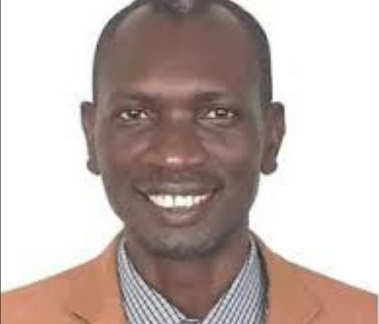
Mistake to miss opportunity
To most commentators, this is an opportunity that should not be missed to flesh-out standard on how government research agencies, such as universities, treat inventions arising from the work they fund or sponsor.
The main question is who should retain ownership of the knowledge and technologies that result from such research.
The debate should also address the dangers of emerging commercialisation of the outputs of publicly funded research.
There are concerns raised elsewhere that although commercialisation of university-based inventions such as Covidex, has immense benefits, it could easily impede other forms of knowledge transfer as universities prioritise commercialisation at the expense of their traditional mission to pursue fundamental knowledge. Those pushing this line fear a switch from curiosity-driven topics toward applications that could yield financial returns.
In most countries, government-owned research facilities, research grants to universities and procurement contracts with private industry, fund a lot of Research and Development (R&D).
According to experts in the area, one of the most complicated problems associated with government funding of R&D is the allocation of patent rights among the government, government employees, universities, university employees and government contractors and subcontractors.
In the U.S., for example, the government has all rights to any invention made by an employee if any one of the following conditions applies: the invention is made during working hours, the invention is made using either government facilities, equipment, etc., or is made with the help of another government employee who is on official duty, or the invention relates to the official duties of the inventor.
But the government is not required to take title if it would be inequitable. For example, if the invention was made by an employee with minimal use of government time or materials or when the government has insufficient interest in the invention.
The actual allocation of title requires the resolution of complicated issues. For example: When is an invention “made?” What are the official duties of a government employee inventor? When is it inequitable for the government to obtain title?
Experts say it would be a mistake if the government, Prof.Ogwang’s lawyers, and research agencies miss this opportunity to standardize positions on these issues.
More legal fights
For now it is not just Mbarara University that Prof. Ogwang has to deal with. There are a number of lawsuits he has been served with since Covidex became a household item weeks ago.
In one suit, Ogwang is sued alongside 12 statutory bodies before the High court civil division in Kampala for alleged failure to perform their statutory duties including failure to do due diligence to establish the true ownership of Covidex, failure to collect tax and remit it to government coffers, failure to obtain environmental impact assessment of the impact of the ongoing extraction or exploitation of millions of the tree species expected to be used to make millions of vials of Covidex, among others.
The suit is by a lawyer called George William Alenyo and among those sued include MUST, NDA, Uganda National Bureau of Standards (UNBS), National Environmental Authority (NEMA), National Forestry Authority (NFA), Uganda Registration and Services Bureau (URSB), Pharmaceutical Society of Uganda, Jena Herbals Uganda Limited, and Uganda Revenue Authority (URA).
The suit alleges that Ogwang was able to develop Covidex because of a government facility; PHARMBIOTRAC, that promotes herbal and natural products in Africa. It was reportedly established in 2001 with a World Bank loan and is based at MUST.
The petitioners say is not right for Ogwang to draw a salary from the government and also seek to profit from a product he developed using government facilitation. The goal of PHARMBIOTRAC is to build a critical mass of specialised and skilled human resource that can advance traditional medicine and Pharm-Biotechnology for socio-economic development of Africa.
“The plaintiffs aver that actions of the 1st defendant (Ogwang) to attempt to own another’s (Government of Uganda) patent on Covidex in trust for the people of Uganda, is unlawful and the 1st defendant ought to be condemned to general damages and a permanent injunction to be issued against him to claim Covidex patent,” the petitioners’ state.
However Ogwang who was days ago warned off speaking to the press is determined to go ahead with his covidex battle. On June 18, he filed a trademark application and on the 28th, it was published in the Uganda Gazettte. The Uganda Gazette is the official government publication that contains Notices, government declarations and supplements, Bills and statutory instruments. Ogwang who recovered from covid19 months ago said he used Covidex and got cured within days and recommended it to friends and family. In an interview, he expounded on the properties of covidex.
“You know, plants have several compounds in them; one plant can have over 200 compounds. What’s most important is how you extract them, organize them to handle a particular disease.” he revealed. “Knowing that this plant has antiviral properties, which in the villages are used against measles and certain coughs, and since Covid is a virus, I thought the two could be linked.”
Meanwhile, Omongole has told The Independent that his client, Ogwang, received a call from Warren Naamara, chairman of the University Council that was conciliatory.
“They are backing out of the fight,” he said.
Omongole said the position of the university council was to convince Ogwang to stay at the institution because of the prominence he has brought to it. He further says that the university council was willing to offer Ogwang a two year sabbatical to bolster his research on Covidex.
****
 The Independent Uganda: You get the Truth we Pay the Price
The Independent Uganda: You get the Truth we Pay the Price



Thanks so much.